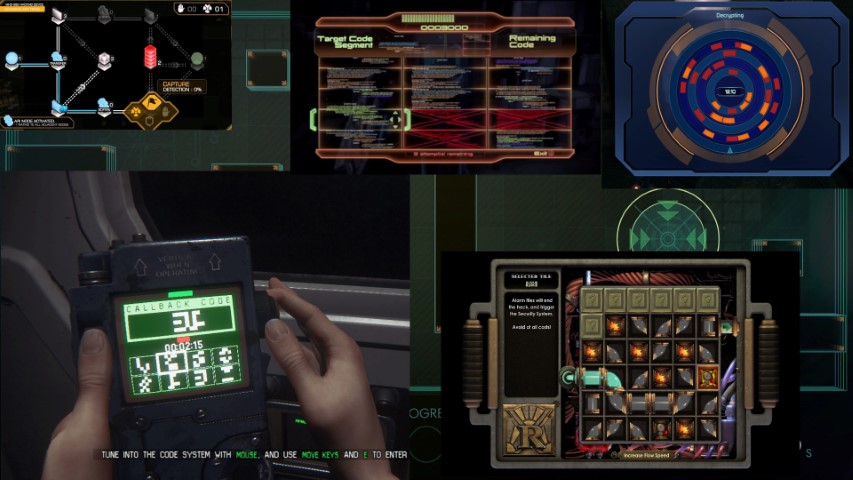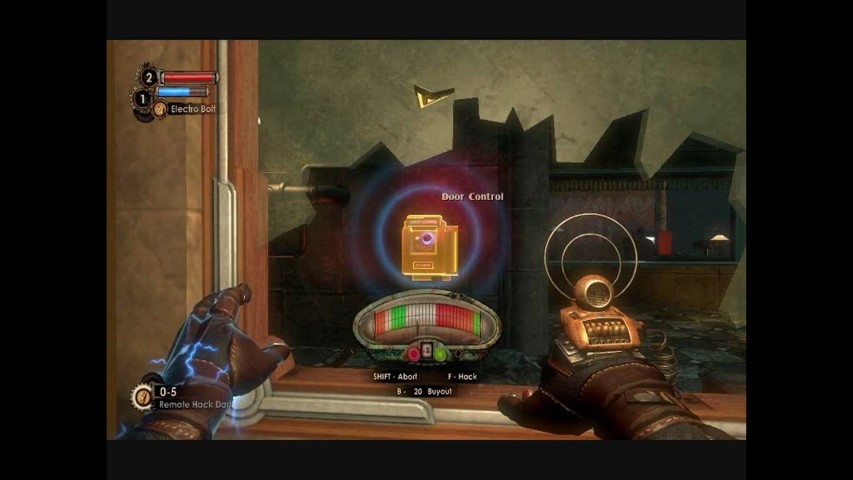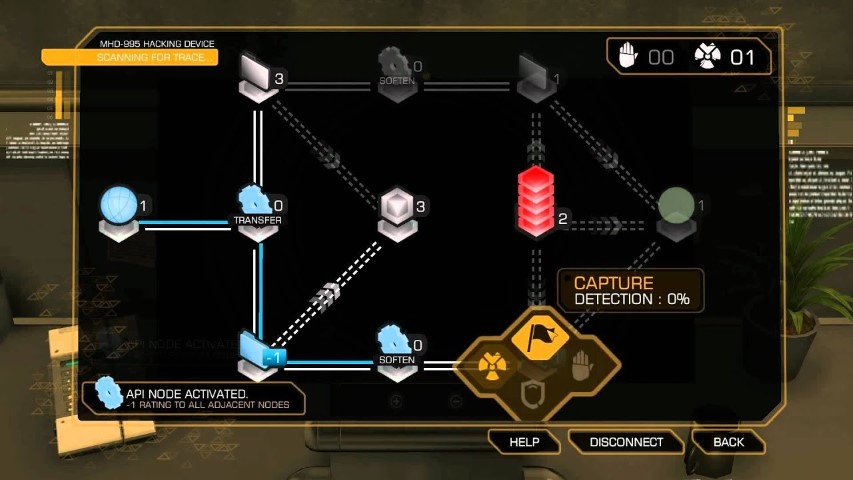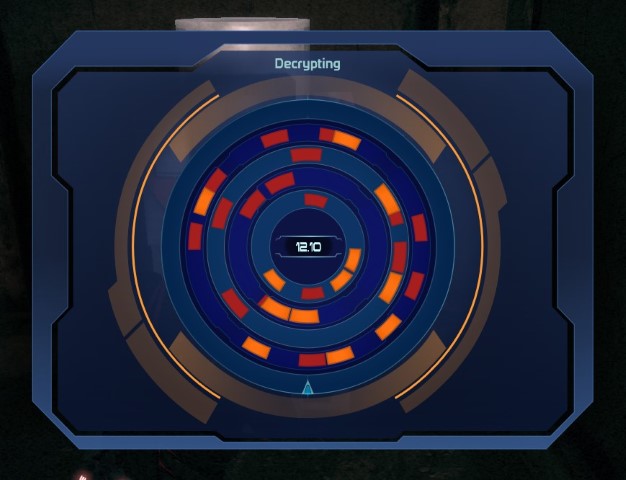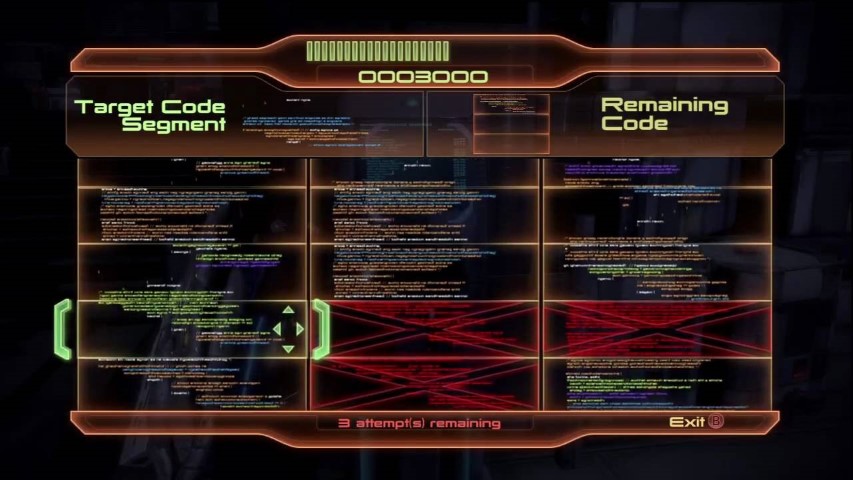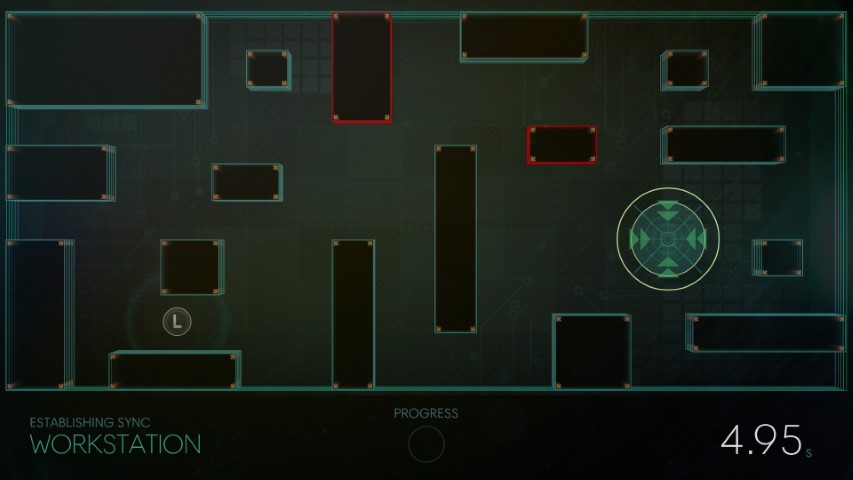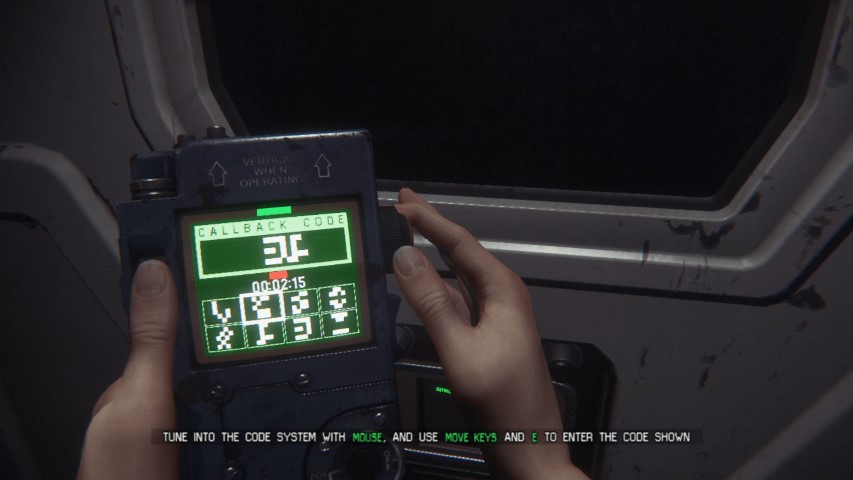
In part one we explored how System Shock 1 and 2, Deus ex, and Fallout 3 handled hacking mini games. Here we'll tackle some more examples, and explore how they affect the overall gameplay.
BioShock (2007) Irrational Games
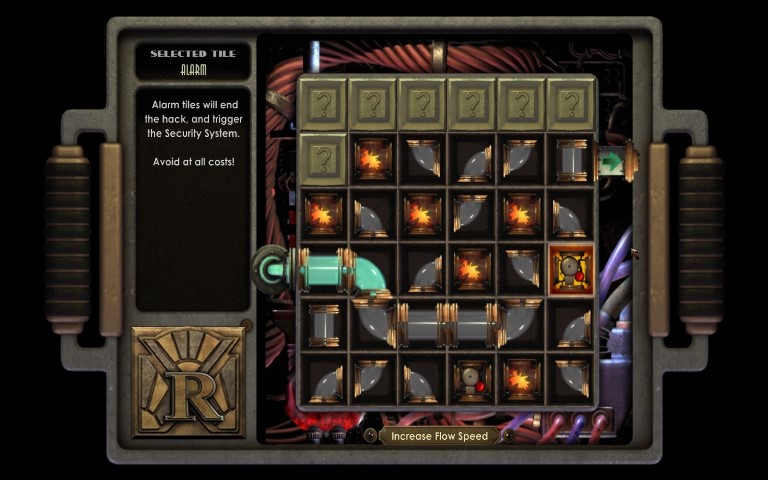
Irrational Games' 2007 masterpiece BioShock is praised to this day by players and critics alike. The game's masterful story, beautiful art deco art style, and engaging gameplay left lasting impressions on millions of gamers. One thing that's not remembered so fondly though is the game's now infamous hacking mini game. The mini game is simple enough, you must use straight tiles, and elbow tiles to connect a path from start to end. The difficulty depends on the thing the player is hacking, and on the Engineering Tonics the player has equipped.
Some hacks late game are straight impossible if you don't invest heavily into Engineering Tonics. When the rest of the game is of such high quality, the transition to the hacking mini game is quite jarring. Time stops, and any enemy in the vicinity is patiently waiting while you fiddle with pipe pieces. It breaks immersion and feels a bit cheap. The saving grace in BioShock is that you can avoid hacking almost altogether. You can buy out any hack with cash which is plentiful throughout the game, while also having access to auto hack devices which you can find as loot or craft by early mid game.
BioShock 2 (2010) 2K Marin
2K Marin took the criticism BioShock's hacking received to hearth, and came up with an elegant solution that enhances the overall gameplay. In BioShock 2, you are given a hand held hacking device equipped with hack darts. You have two types of darts available, one type hacks automatically, while the other one introduces a simple mini game. To successfully hack a device you have to hit a button as a sliding needle swings past the correct spot on a dial. Hacking happens in real time, the hacking window is tiny and doesn't obstruct the view, and you can hack from long range by shooting the darts. It's a huge improvement from the original game's weird pipe simulator, and is an example of hacking done right.
Deus Ex: Human Revolution (2011) Eidos Montreal
The hacking mini game in Deus Ex: Human Revolution is maybe the best one in the history of gaming, but that doesn't mean that there are no problems that eventually drag it down. It's done in real time, players are tasked with capturing a critical, or security node by moving from node to node capturing along the way. Each click on the node has a chance to alert system's security, which will also begin to capture nodes until it eventually gets to the player's starting node, locks him out of the terminal and triggers an alarm.
There is some strategy involved as players can capture multiple nodes simultaneously, plan routes through the grid, fortify captured nodes, and use viruses to stop the security system. It's the most fun you'll have with a hacking mini game probably ever, but at the same time, by the end of the game you'll be sick of it. The problem lies within the game's XP system that rewards you with different amounts depending on hack difficulty. There's an ungodly number of computers and doors to hack through the game, and if you avoid hacking you're robbing yourself from huge stacks of XP that you use to unlock new abilities. All this leads to the mini game overstaying its welcome by the end, as even if you find a password that lets you unlock a computer, you're going to hack it anyway for that sweet sweet XP.
Mass Effect 1 (2007) BioWare
BioWare's space opera RPG featured a simple hacking mini game that presented you with a set of rotating concentric rings. Players had to navigate an arrow through the ring openings, and reach the center before the time limit expires. Quite a simple mini game which is not too bad on its own, the problem again is that you'll have to do it a million times before the game ends. Almost every loot crate required you to hack, and there's usually a ton of them in each mission. One feature that eases the pain somewhat, and allows you to skip the mini game is the use of omni-gel resource. Even then, the majority of players complained about the mini game and BioWare listened.
Mass Effect 1 (2007) BioWare
For the sequel, BioWare applied a more sane approach. They didn't remove hacking altogether, instead they reduced it to a minimum. Now you would only have to hack something a handful of times per mission at most. BioWare developed a couple of simple, short mini games that didn't require a lot of skill to complete. The result was that almost no one complained about hacking anymore, but BioWare went one step further in the final game, and removed it completely. When you had to hack something in Mass Effect 3, Shepard would simply raise his omni tool with a single button press and hack a doors for you, no mini game in sight.
Prey (2017) Arkane Studios
Arkane Studio's 2017 masterpiece Prey is the finest example of modern immersive sim games. The game is praised for its intelligent design, interconnecting gameplay systems, immersive setting and intriguing story. One would think that hacking would receive the same treatment of excellence but alas, Prey features one of the laziest examples on the list. The mini game is dead simple, you have to navigate a ball from one end of the maze to the exit point in a fixed amount of time. Depending on the hack difficulty, you'll have to repeat the same process up to four times on "hardest" hacks, and one on easiest. Hardest is with quotations because for some unknown reason level 2 hacks are much harder than level 4, which is baffling since you have to invest quite a lot of Neuromods into hacking to max it out. This is one example where developers just shouldn't have bothered making a mini game at all, if this is the best they could make. It adds nothing to the overall experience and breaks immersion.
Alien: Isolation (2014) Creative Assembly
The last example we'll explore in this article is one of the finest implementations of hacking mini games. It's immersive, done in real time and fits the game perfectly. You hack using a Security Access Tuner, a hand held device you find early in the game. To hack with the device, players must find the correct signal and then complete a timed mini game by matching the code.
Very few things can build up tension as well as hacking in Alien: Isolation. You have to hack in real time and performing one tends to put you under immense pressure. Often you'll have to distract the Alien or Working Joe to have enough time to hack something, and even then you're never truly relaxed when performing one. Add in the immersive design of the device itself, and how it's incorporated into the game world and you have a winner. It also helps that you won't have to hack all that much during the game. The hacks are nicely spread out, and developers specifically added them in places to build up tension and put additional stress on the players.
We could probably fill up a number of additional articles to cover all interesting examples of hacking mini games, but this will have to do. Hacking mini games can add a lot to the overall gameplay if used intelligently like in Alien: Isolation or BioShock 2. Too often we get lazily designed crap that was obviously an afterthought during the development. Hopefully more developers will learn from past mistakes and deliver better mini games that add rather than detract from the experience.
The articles content, opinions, beliefs and viewpoints expressed in SAPPHIRE NATION are the authors’ own and do not necessarily represent official policy or position of SAPPHIRE Technology.






